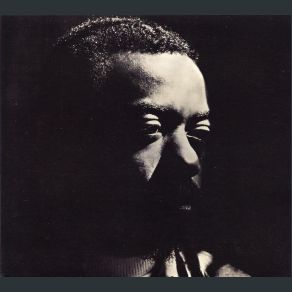Charles Tyler Ensemble
Download links and information about Charles Tyler Ensemble by Charles Tyler Ensemble. This album was released in 1966 and it belongs to Jazz, Avant Garde Jazz genres. It contains 4 tracks with total duration of 33:53 minutes.

|
|
|---|---|
| Artist: | Charles Tyler Ensemble |
| Release date: | 1966 |
| Genre: | Jazz, Avant Garde Jazz |
| Tracks: | 4 |
| Duration: | 33:53 |
| Buy it NOW at: | |
| Buy on iTunes $3.96 | |
| Buy on Amazon $8.99 | |
| Buy on iTunes $3.99 | |
Tracks
[Edit]| No. | Title | Length |
|---|---|---|
| 1. | Strange Uhuru | 9:58 |
| 2. | Cha-Lacy's Out East | 6:35 |
| 3. | Three Spirits | 8:05 |
| 4. | Black Mysticism | 9:15 |
Details
[Edit]One of the true firebrands of early creative improvised music, alto saxophonist Charles Tyler has always been revered — especially by Europeans — as a forefather of the free jazz movement alongside John Coltrane, Ornette Coleman, and Albert Ayler. Also titled Tyler's "First Album," Charles Tyler Ensemble has the same four tracks as the original album release, totaling about 34 minutes of music with no alternate or bonus cuts. This mid-'60s recording, one of two he did for ESP, has been identified by many as a cornerstone statement of the movement, and its issuance on CD does nothing to dissuade the listener of that notion. Regardless of genre, this is a very stimulating band that buoys Tyler's freedom statements, featuring a young pre-Ornette Ronald Shannon Jackson on drums, the emancipated-from-mainstream-jazz bassist Henry Grimes, and obscure cellist Joel Friedman, who worked briefly with Ayler. Drummer Charles Moffett — also closely associated with Coleman in this time period — plays the bright, so-called "orchestra vibes" on one track. With this vivacious music that stretches time parameters and harmonic envelopes, Tyler and his crew bend whatever malleable shapes they can, while burning down the traditional jazz house and still paying homage to bebop. It's intriguing to hear Tyler's expressive and robust color palette, using overtones juxtaposed in contrast with Moffett's tinkling vibes, a fickle sonance during "Strange Uhuru" as the bowed string players surround the sound in hushed tones. Jackson's bop-like rhythms permeate "Lacy's Out East" in a rambling deep blues that reflects his peer group of saxophonists, including Steve Lacy. "Three Spirits" is a song turned inside out, sped up and on fire with incendiary phrases in a fast free bop with little regard for subtleties. Tyler employs a spiky, tongued technique with harder accents of reference during "Black Mysticism," unafraid to wail as Jackson's rolling-thunder drumming makes this sound like a duet, though Grimes is present in rhythmic passion, more so during his and Friedman's bowed solos. This is certainly a definitive recording, a breakthrough for Tyler individually, but also one that sets the bar high for '70s free jazz to establish itself as a powerful force some ten years after it was brought into being, amidst naïve skepticism and misunderstanding. Bravo to Tyler for staying the course, starting with this bold and innovative album. ~ Michael G. Nastos, Rovi